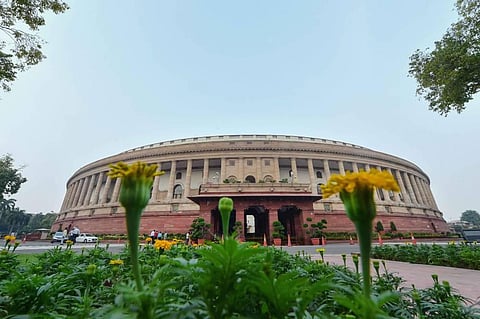

NEW DELHI: The Parliament on Wednesday passed Bilateral Netting of Qualified Financial Contracts Bill, which aims at providing a firm legal framework for bilateral netting of qualified financial contracts. The move would also enable banks to increase credit limits for counter parties and enable release of large amounts of locked up capital in the banking system for onward lending.
“The Bill is critical for stability of the financial market... This bill will actually bring in a firm legal basis for bilateral netting between two counterparties...Multilateral netting has been taken care of,” Finance Minister Nirmala Sitharaman said while presenting the bill in Rajya Sabha.
Bilateral netting refers to offsetting the claims arising from dealings between two parties to determine the net amount payable or receivable from one party to the other. Explaining it further, the finance minister said that Bilateral Netting of Qualified Financial Contracts Bill covers financial contracts entered into, on a bilateral basis, outside the clearing system.
The Bill will empower financial regulators such as RBI, SEBI, IRDAI to notify contracts under its purview as qualified financial contractors. The value of bilateral derivative contracts is estimated by the Clearing Corporation of India to be Rs 56,33,257 crore as of March 2018, said Sitharaman.
The minister also said that the bill has been brought in to address the lessons learnt from the 2008 global financial crisis and added that if the legislation was available in 2017, banks would have had Rs 42,192 crore for onward lending, but they had to keep it locked up. “Money locked up in banks is not available while economy is starved for funds. This will enhance liquidity and economy will get lubrication,” the minister added.
Money bills returned
The Rajya Sabha also returned the Appropriation Bill, without any discussion. This Bill allows the government to withdraw funds from Consolidated Fund of India to meet its expenses during the year